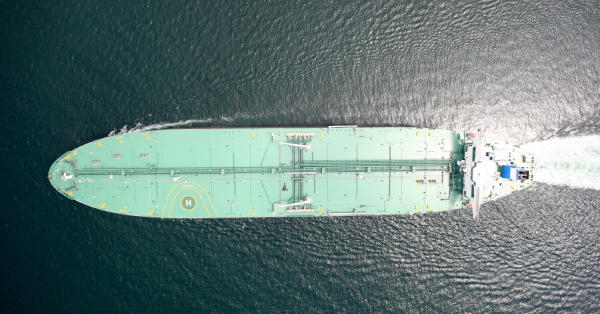The rise in freight rates seen through June for Very Large Crude Carriers could be coming to an end, market sources said in the days leading up to June 22, as the onset of fresh cuts in Saudi crude production began to weigh on market sentiment.
Despite weak economic data, China has cranked up crude buying in recent weeks before the latest Saudi-led bout of output cuts from OPEC+, a coalition of OPEC and other oil producers, take effect. The increase in crude buying supported freight, bolstering VLCC rates from the Middle East to China.
However, this could be about to change.
“Rates on larger tankers are going to crumble, I think,” one London-based shipbroker said June 21.
Platts, part of S&P Global Commodity Insights, last assessed Dirty Arab Gulf-China 270,000 mt freight at $20.91/mt June 21, having surged 90% since the start of June. However, freight rates have wavered in recent days, having dipped from the recent high of $21.41/mt seen June 19.
Comparatively, the five-year average for the route stands at $11.74/mt.
“VLCCs export nearly 90% of Saudi Arabia’s seaborne crude oil exports, and the Saudi Arabian exports provide nearly one third of all volumes carried by VLCC”, shipping industry group BIMCO said in a research note June 22.

Saudi Arabia announced June 4 its latest surprise cut of 1 million b/d, to take effect in July, on top of the existing 1.5 million b/d output reductions it is already implementing. The July cut will take Saudi Arabia’s crude production to about 9 million b/d, its lowest level since June 2021, and will come as domestic consumption is likely to peak due to power generation for air conditioning use in the summer.
An increase in supply has added to questions over demand, as crude tankers have started to avoid Nigeria, thus adding length to the rest of the global market, according to market sources.
Tanker owners are starting to stay clear of Nigeria after several companies received large back-dated tax bills, which, alongside blending of West Texas International and Brazilian crude at European refineries, is piling pressure on Nigerian crudes.
Shipping and trading sources said that shippers had been hit with demands from Nigeria’s Federal Inland Revenue Service for millions of dollars in backdated taxes.
The period covers 2010 to 2019, meaning any shipper that loaded crude, natural gas or refined products at Nigerian ports during that time could face a penalty, according to reports. The tax authorities are thought to be using historic vessel tracking to enforce the rule.
For now, loading volumes have not been visibly affected. Western African crude loaded in the week started June 12 totaled 1.6 million million b/d, according to data from S&P Global Commodities at Sea. This falls within an established range, with volumes since May ranging between 1.5 million b/d and 1.9 million b/d.
Source: Platts









































